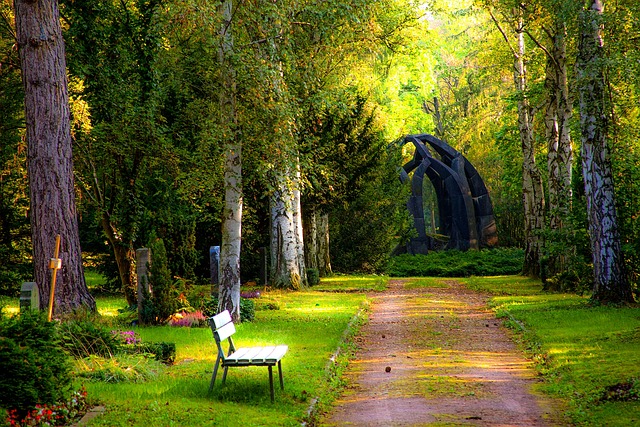The Death, Love and Wisdom Summit was offered free from 12-16 October 2023 by Lions Roar and is now offered as an paid, upgrade option. The Summit brought together 16 key leaders and teachers in the field of caring for the dying, handling grief and facing the reality of our own death. The offerings included lessons learned from the dying, meditations and transformative processes. Many of the presenters are also accomplished authors in how to deal with the end-of-life transition, our own death and that of others close to us. Keynote addresses were provided by Joan Halifax, PhD, and Frank Ostaseski, Co-Founder of the Zen Hospice Project.
A perspective on death, dying and grief based on personal experience and academic research
The Summit provided a range of perspectives on end-of-life issues and offered insights from various hospice settings and research undertaken by the presenters. Dr. Joanne Cacciatore, a bereaved mother and tenured Professor, spoke about traumatic grief arising from an unexpected event with catastrophic consequences. She detailed the spiritual, emotional and somatic/physical symptoms of traumatic grief. Joanne talked about the “grief umbrella” with each spoke representing a different feeling, e.g., anxiety, regret, anger, guilt, despair, or abandonment. She explained, too, that grief can manifest in many forms on the physical level as inflammation and inhibited immune response, breathing and sleep disruption, trembling and headaches, or unpredictable, bottomless pain.
Having experienced the death of Cheyenne (her fourth child who was still-born) and the associated totally, debilitating traumatic grief, Joanne established the MISS (Mothers in Sympathy and Support) Foundation that provides a wide range of support for those “grieving the death, or the impending death, of a child” – offering advocacy, counselling, research, education for caregivers and resources. This initiative was motivated by the lack of support available for her own grieving process, the lack of understanding and empathy of the medical community who viewed grief as “pathological” and what she describes as “the social constraints on grief”.
In a YouTube interview, Bearing the Unbearable, Joanne cites research that shows that social constraints are the “greatest predictor of poor psychological and physical outcomes” of the grieving process. These constraints are reflected in implicit and explicit messaging such as “move on”, “don’t talk about it”, “get over it” or “go back to work”. Another aspect of negative social influence is what Joanne describes as “toxic positivity” where people are encouraged to always choose happiness or joy (rather than face the reality and pain of the challenging emotions of grief).
Selah Model of Grief
Joanne promotes the Selah model of grief – which involves “fully inhabiting grief” by “being with” our grief, surrendering to our grief and transforming our grief into compassionate action. In her video interview, Joanne indicated that she was able to be with her grief through frequent crying and commented that her 3 year old daughter showed more grief wisdom than many medical practitioners when she said. “It’s okay to cry Mummy because babies are not supposed to die”.
Joanne likened embracing grief to the progressive undertaking of a new yoga pose – where initially you have to reduce the time spent in the pose because of the pain experienced when challenging the muscles with a new position, but persistent practice gradually builds capacity to hold the pose longer and more capably.
Human-Animal Connection in the grieving process
Based on her own grieving experience and research from her studies, Joanne also advocated for the human-animal connection as a means of healing for grieving families after seeing the effect a horse rescued from abuse had on a grieving client. After a fortuitous meeting with Dr. Rich Gorman, who was studying the idea of “therapeutic spaces” and the mutual therapeutic effects of bringing together humans and animals, Joanne established the Selah Carefarm, which today is home to more than 50 rescued animals and also a mixed “community” of support for grieving families and individuals who travel from all around the world to be part of the mutuality of the Carefarm.
The healing processes for grief
Joanne is the author of Bearing the Unbearable: Love, Loss and Heartbreaking, and she maintains that where there is love, grief is inevitable in the event of the loss of a loved one. In the book, Joanne offers a process for creating the space ‘to integrate and honour our grief”. Her follow-up book, Grieving is Loving: Compassionate Words for Bearing the Unbearable, provides quotations from the previous book together with new prose and poems from Joanne.
Joanne encourages movement as part of the healing process for grief, e.g., dance, bare-foot hiking, running and yoga. She maintains that there is a need to transform the energy of grief and this can be achieved through movement and creative outlets such as art and writing. Joanne is a strong advocate, and daily practitioner, of meditating and expressing gratitude. She offers more advice on How to Navigate the Path of Grief in a recent podcast interview.
Reflection
The Death, Love and Wisdom Summit provides a wide range of resources for dealing with grief. The advice given by the experienced teachers and grief counsellors is very practical and readily implementable.
The Summit presentations reinforced the view that as we grow in mindfulness through meditation and other mindfulness practices, we can build our resilience and our compassion, and increase our ability to manage the challenging emotions and physical impairment that accompanies the grieving process.
________________________________
By Ron Passfield – Copyright (Creative Commons license, Attribution–Non Commercial–No Derivatives)
Disclosure: If you purchase a product through this site, I may earn a commission which will help to pay for the site and the resources to support the blog.
